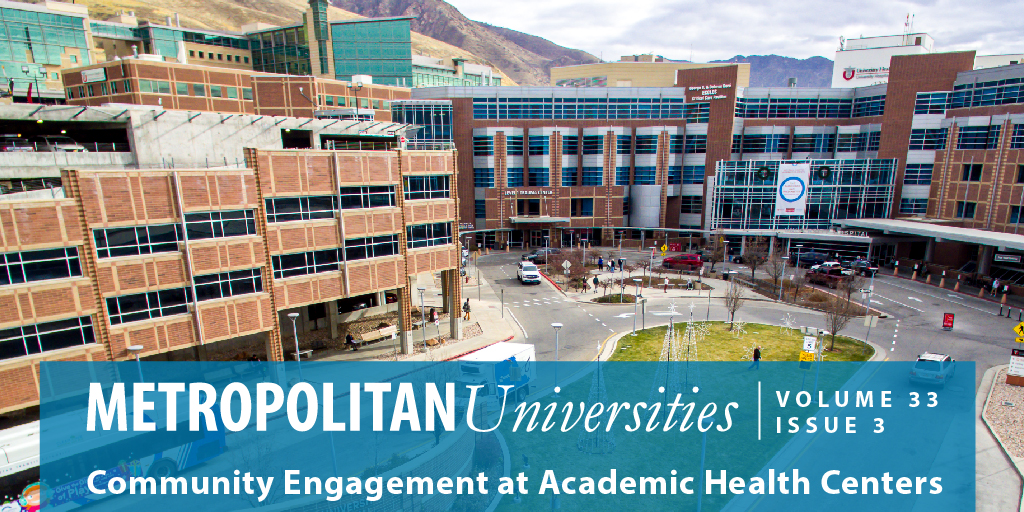Community Engagement and Learning at an Academic Medical Center
Maintaining Community-Academic Partnerships During the COVID-19 Pandemic
DOI:
https://doi.org/10.18060/25696Keywords:
Community Health, Community-Based Participatory Research, Community-Based Learning, Health Equity, COVID-19 Pandemic, Intellectual and Developmental Disabilities, Health DisparitiesAbstract
In light of the ongoing COVID-19 pandemic, the health disparities plaguing our communities are highlighted more than ever. Community-based learning (CBL) and community-based participatory research (CBPR) provide a highly relevant framework in addressing health problems, especially those related to the Social Determinants of Health (AHRQ, 2020). Throughout the COVID-19 pandemic, the team at the Community Health Division (CHD) within the Family Medicine Department of Georgetown University School of Medicine (GUSOM) maintained and deepened relationships with community partners through engagement activities, which not only actively addressed community needs but also acted as an educational tool for a growing number of interdisciplinary students. This paper explores the effectiveness of CBL and CBPR as a framework, even when presented with challenges of the COVID-19 pandemic. It further underscores how students at Georgetown University have become more intimately involved in community health engagement during the pandemic. This serves as an encouraging model for establishing a student-based research learning community.
References
Agency for Healthcare Research and Quality. (2020). AHRQ activities using community-based participatory research to address healthcare disparities. Retrieved from https://www.ahrq.gov/research/findings/factsheets/minority/cbprbrief/index.html
Beckman, M., & Long, J. F. (2016). Community-based research: Teaching for community impact. Stylus Publishing, LLC.
D.C. Office of Planning, Government of the District of Columbia. (2020). (rep.). Food access and food security in the district of columbia: Responding to the covid-19 public health emergency. Retrieved from https://dcfoodpolicycouncilorg.files.wordpress.com/2020/09/food-security-report-9-24-20.pdf
Iezzoni, L. I., Rao, S. R., Ressalam, J., Bolcic-Jankovic, D., Agaronnik, N. D., Donelan, K., Lagu, T., & Campbell, E. G. (2021). Physicians’ perceptions of people with disability and their health care. Health Affairs, 40(2), 297–306. https://doi.org/10.1377/hlthaff.2020.01452
Karpur, A., Vasudevan, V., Lello, A., Frazier, T. W., & Shih, A. (2021). Food insecurity in the households of children with autism spectrum disorders and intellectual disabilities in the U.S.: Analysis of the National Survey of Children’s Health Data 2016 - 2018. Autism, 25(8).
https://doi.org/10.1101/2021.03.29.21254546
Luijkx, J., van der Putten, A. A., & Vlaskamp, C. (2017). A valuable burden? The impact of children with profound intellectual and multiple disabilities on Family life. Journal of Intellectual & Developmental Disability, 44(2), 184–189. https://doi.org/10.3109/13668250.2017.1326588
Marshall University. (2021). What is community-based learning? Retrieved from https://www.marshall.edu/ctl/community-engagement/what-is-service-learning
Odoms-Young, A., & Bruce, M. A. (2018). Examining the impact of structural racism on food insecurity: Implications for addressing racial/ethnic disparities. Family & community health, 41 Suppl 2 Suppl, Food Insecurity and Obesity (Suppl 2 FOOD INSECURITY AND OBESITY), S3–S6. https://doi.org/10.1097/FCH.0000000000000183
Rink, E., Knight, K., Ellis, C., McCormick, A., FireMoon, P., Held, S., Webber, E., & Adams, A. (2020). Using community-based participatory research to design, conduct, and evaluate randomized controlled trials with American Indian Communities. Preventing Chronic Disease, 17. https://doi.org/10.5888/pcd17.200099
Tremblay, M.-C., Martin, D. H., McComber, A. M., McGregor, A., & Macaulay, A. C. (2018). Understanding community-based participatory research through a social movement framework: A case study of the kahnawake schools diabetes prevention project. BMC Public Health, 18(1). https://doi.org/10.1186/s12889-018-5412-y
Downloads
Published
Issue
Section
License
Copyright (c) 2022 Meghan Chin, John DiBello, Sam Indresano, Rajay Dockery, Henrike Schmalfuss, Amanda Gao, Margaret Eshleman, Nesreen Shahrour

This work is licensed under a Creative Commons Attribution 4.0 International License.



